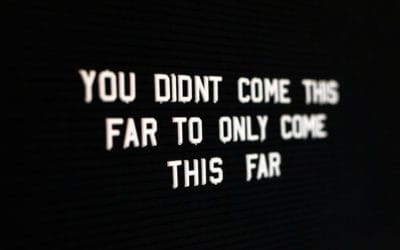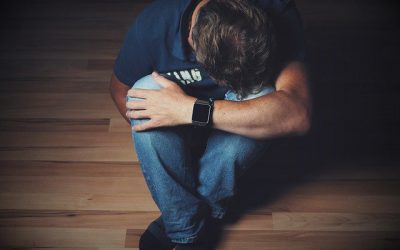According to Dr. Ed Ellison, the chairman of the board of the Kaiser permanent medical group, students entering medical school have the highest level of wellness and resilience of any group of students entering graduate studies. Yet, they come out with the lowest wellness and resilience of any graduate program. They have expected wellness at the end, but are met with bitter disappointment, resentment, and burnout. He speaks about this in the video below. If true, that’s pretty shocking.
We are taught the phrase “Do no harm” early and often in medical training. It comes from the Hippocratic oath. The imperative being taught here is to make sure that our interventions, decision making, and interactions do not harm our patients. What is often ignored in this “Do no harm” sentiment is that, we think, it doesn’t really involve the medical provider.
In order to not harm our patients, we must first prevent any harm from being done to us. We have discussed before how burnout negatively impacts patient care. If we are to truly live out the “Do no harm” imperative, we must first make sure that we are not being harmed ourselves. After all, we cannot expect to replenish the empty cup of wellness our patients bring if our cup is empty, too. If the well has run dry, there is no water to be given.
Is medical school a set up?
Medical student, resident, and attending physician burnout really does beg the chicken and the egg question. Does medical school attract students that are more likely to be prone to burnout? Or is it the system that causes the burnout of the students it is supposed to nurture?
Some have advocated that the type of student entering medical school is a perfect set-up for burnout. We tend to be perfectionists and to suck it up when the going gets hard. We also tend to have an extremely hard time asking for help. Asking for help is not usually how most of us got to where we are. (That is not to say we did not receive help getting here. Quite the opposite is true.)
Those entering the medical field usually do so because of an altruistic desire to help others. We often fail to focus on our own needs, because our needs are not as important as others (including our patients). This is taught to us through medical school when we put our life (and sometimes our family) on hold. Then residency starts, and the cycle is perpetuated. The never ending cycle of not taking care of ourselves, not asking for help when we need it, and putting ourselves last is cyclical. This results in depression, burnout, and even suicidal ideation in roughly 10% of our medical student population.
So, really it starts in medical school, gets worse in residency, and when the light finally comes at the end of the tunnel it isn’t all it is cracked up to be. All that hard work and sacrifice didn’t pay off to produce the life of wellness that was anticipated. We actually end up being hardened and jaded. We often resent ourselves. This is likely because our expectations didn’t meet reality. We are bound to be disappointed.
What are we to do?
I don’t know that the system is to blame or if it is the kind of person (the perfectionist who cannot ask for help) that leads to burnout. What I do know is that it is the responsibility of both the system (i.e. medical schools, residencies, and hospitals) and the individual to make a change. Our current system simply isn’t working.
Maybe this means putting in screening programs for our students, residents, and faculty members? Early recognition is the biggest step. This could also mean providing adequate support staff to help function as a pop-off. Maybe this means cutting down on the amount of paperwork and bureaucratic tape we have to fight through to perform out jobs. It could mean paid vacation time or expected paternity and maternity leave?
Personal Responsibility
We must note that some of this is up to us as the medical provider. We need to take our vacation. It is important to spend time with loved ones. If we are struggling we should view weakness not in seeking help but in not seeking help. We should expect of ourselves to take care of ourselves first.
This may mean saying “no” when others ask us to join a new committee or lead a new initiative. You may need to set apart very specific time that is not to be disturbed to do something you really love and enjoy. Importantly, it means that you need to take an inventory of what is causing your resentment and discontent so that it may be addressed.
While our system needs to make changes, we must expect some changes ourselves, too. Please, seek help if you are struggling with burnout, depression, or suicidal ideation. You are not alone. There are a lof people who want to help you, but you need to let them help you first.
[Check out Dr. Ellison’s video at the bottom of this post for interest conversation on this topic].
What do you think? Is your cup empty? How do you replenish what is missing when it runs dry? Is all this talk of burnout for naught? Are you checking in on your colleagues, friends, and loved ones?
TPP






I’ve written extensively about burnout on my other, non anonymous blog. The practice of medicine can be excruciating. No one escapes unscathed. The difference as of late is that the respect and support are now non existent.
Yeah it can be a tough time to practice medicine.
I actually had an Ortho resident today (when I asked if the surgeon was on campus prior to bringing a patient back) tell me “I don’t know where he is… Page him.”.
I’d about had it at that point. Was happy to remind the resident I am not the surgeons secretary and that the patient wouldn’t be coming back til his feet were on campus.
We get beat about the brow. It’s part of the job. (FWIW, I like that resident a lot and we had a forgive and forget session shortly after).
Great post. Physician burnout is a major issue and suicide is such a tragedy.
I like what Dr. Ellison is doing with Kaiser Permanente medical school. It sounds very progressive and forward thinking. And I like how Kaiser understands the importance of work life balance and physician wellness.
I agree. I think that most of our schools need to head this direction. I always find it strange when people think that we cannot both accomplish good training and prevent burnout.
The old system is not the only way to do things. And wellness and good training certainly are nor mutually exclusive.
I think the rigid hierarchical structure I see in the medical field really exacerbates this problem. Medical students are anchored firmly at the bottom, and it seems like each rung on the ladder breeds contempt for the next rung up and those who are now below.
I’m not in medicine, my wife is, but I’m amazed by how much stupid aggression and authority based on seniority I observe. I wouldn’t want to work in that environment, and I’m not surprised that those who do soon grow weary.
Anyway, I think it’s the system and not the people, but that’s just my opinion from an outside(ish) perspective.
Yeah,it doesn’t make sense to me either. I actually ask all of my students and residents to call me by my first name for this reason. I want them to feel comfortable. It’s never made sense to me why students or residents get treated with any less respect or dignity than anyone else. But it does seem to be the case in a lot of places.
It is a systems problem, for sure.
TPP